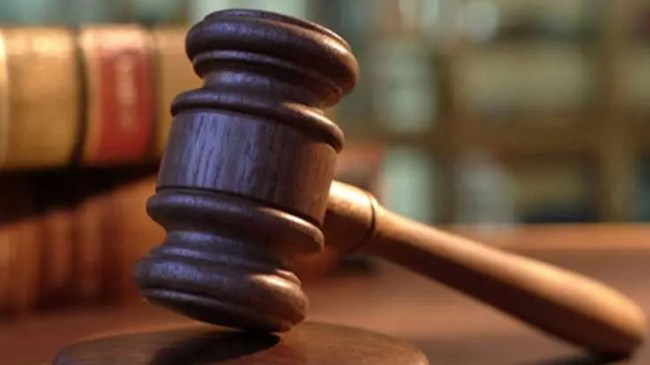Opinion Allahabad HC comment in rape case shows we need feminist judges
Men have shaped law as an institution, and as a result, it produces patriarchal outcomes. We need judges who are robust in their judicial reasoning, and do not sermonise to the survivors of crimes
 The court was hearing a suit filed against the couple by the man, who lived in Vijay Nagar in north Delhi.
The court was hearing a suit filed against the couple by the man, who lived in Vijay Nagar in north Delhi. Recently, while granting bail to a person accused of rape, the Allahabad High Court held that the woman had “invited trouble”, and should understand the implications of her behaviour. The woman, a university student, had gone to the accused’s place to rest while intoxicated. Justice Sanjay Kumar Singh held, “This Court is of the view that even if the allegation of the victim is accepted as true, then it can also be concluded that she herself invited trouble and was also responsible for the same.”
The Supreme Court, in Aparna Bhat v State of Madhya Pradesh (2021) had laid down several guidelines for courts and directed that, “… (the) discussion about the dress, behaviour, or past ‘conduct’ or ‘morals’ of the prosecutrix, should not enter the verdict granting bail … Sensitivity should be displayed at all times by judges, who should ensure that there is no traumatisation of the prosecutrix, during the proceedings, or anything said during the arguments, and… Judges especially should not use any words, spoken or written, that would undermine or shake the confidence of the survivor in the fairness or impartiality of the court.” The Allahabad High Court has failed on all these counts in the above bail order. The Aparna Bhat judgment further mandated that a module on gender sensitisation be included as part of the foundational training of every judge and public prosecutor. Clearly the orders have been slow on the uptake; it may be time to reexamine the training module. But this also leads to a more significant question: Who is the ideal victim?
Norwegian criminologist Nils Christie, in his work, defined an ideal victim as, “a person or category of individuals, who – when hit by crime – most readily are given the complete and legitimate status of being a victim”. Christie notes an ideal victim has the following characteristics — first, s/he is weak; second, s/he must be carrying out a respectable project; third, that the victim was located at a place where she could not possibly be blamed for being; fourth, the offender was big and bad, and finally, the offender must be unknown to her. That the law treats an ideal victim with an exalted status is no longer a disputed claim. Consider the following legal propositions: A wife cannot prosecute her husband for rape. In Deepak Gulati v State of Haryana (2013), the Supreme Court said, “…rapist degrades and defiles the soul of a helpless female”. In Raja v. State of Karnataka (2016), the Karnataka High Court, after looking at the conduct of the victim, held that, “not at all consistent with those of an unwilling, terrified and anguished victim of forcible intercourse”. Similarly, the Delhi High Court in Ismail Faruqui noted that, “Instances of woman behavior are not unknown that a feeble ‘no’ may mean a ‘yes’.” An intoxicated woman going to her male friend’s house does not fit into any of these conceptions of an ideal victim, and so, the recent observation by the Allahabad HC is yet another judgment that will set a disquieting precedent. Victims like the one in the case before the HC, who defy social and societal expectations guided by patriarchal notions, risk blame and derogation. Criminology and victimology tell us that in most jurisdictions around the world, rape survivors face innumerable hardships in prosecuting their rapists, and if the person is not the ideal victim, then the prosecution becomes harder and the sentences imposed become more lenient.
Several legal scholars like Carol Smart, Zillah Eisenstein, and Catharine MacKinnon agree that men have shaped law as an institution, and as a result, it produces patriarchal outcomes. The State of the Judiciary Report (2023) tells us that women account for only about 14 per cent of judges in high courts, and about 9.3 per cent in the Supreme Court of India. This needs immediate correction. Yet, having women judges is not enough; the necessity is to have judges that are feminists in their beliefs, robust in their judicial reasoning, and do not sermonise to the survivors of crimes in their judgments. Judgments like this play a major role in eroding the trust of the survivors in our justice system. One hopes that this observation is expunged by the Supreme Court, either on appeal or in the exercise of its suo moto powers.
The writer is a lawyer at the Supreme Court of India and the author of The Urban Elite v Union of India,






